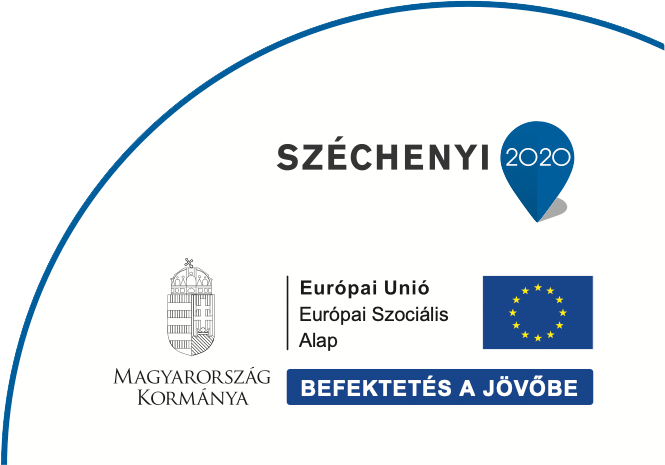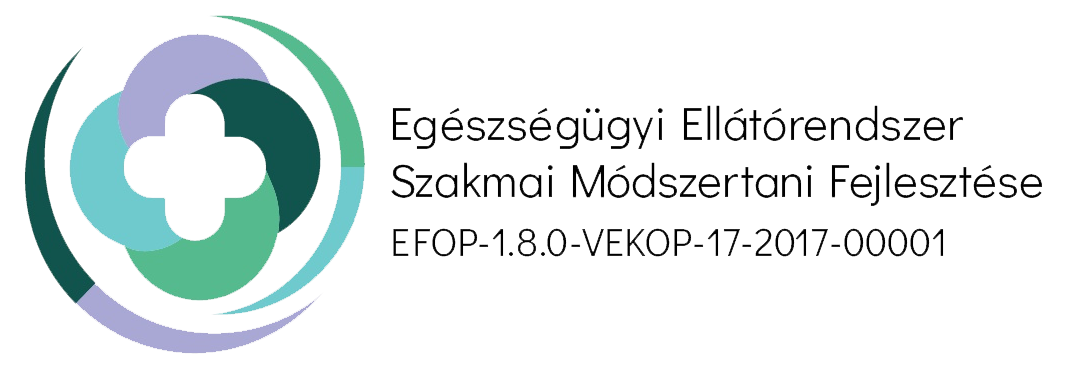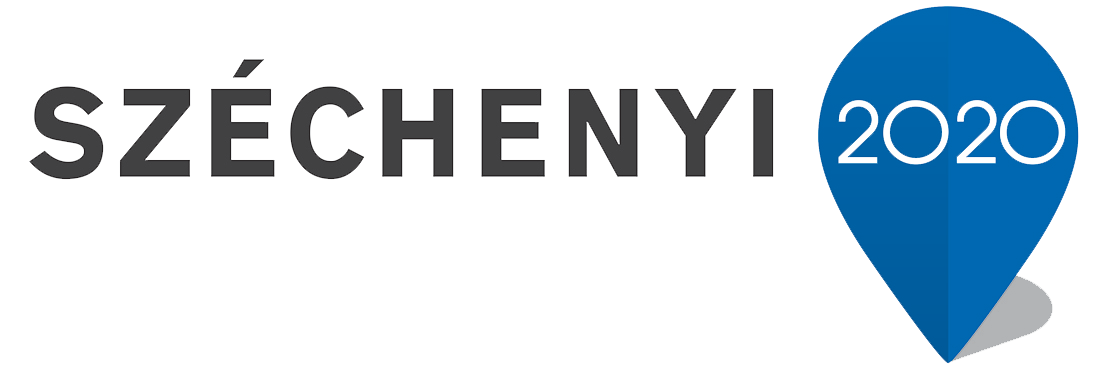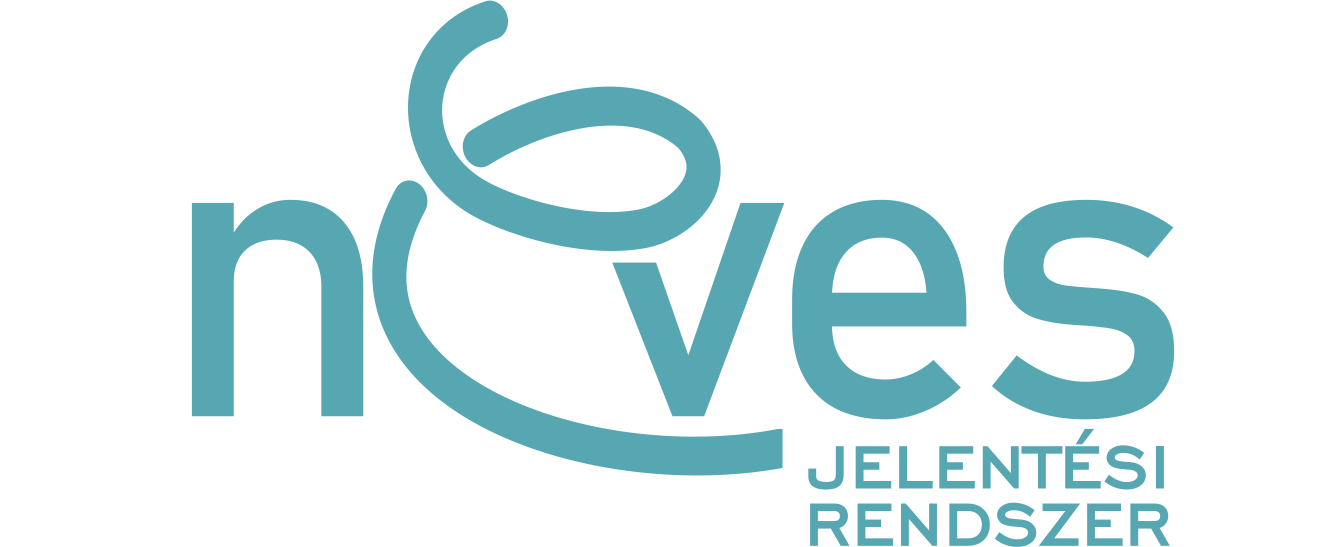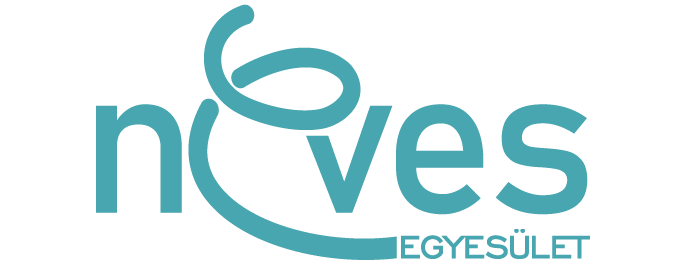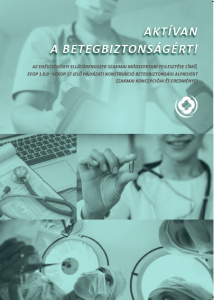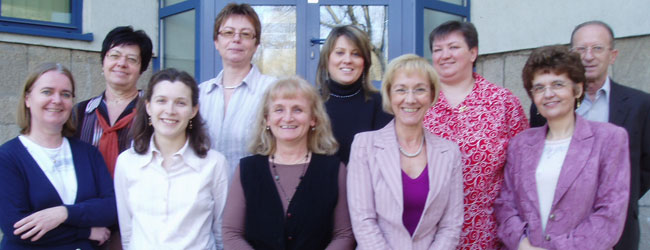Conference on Patient Safety
Date of the conference: September 18, 2023.
Location: Radisson Blu Béke Hotel, Budapest, Teréz krt. 43.
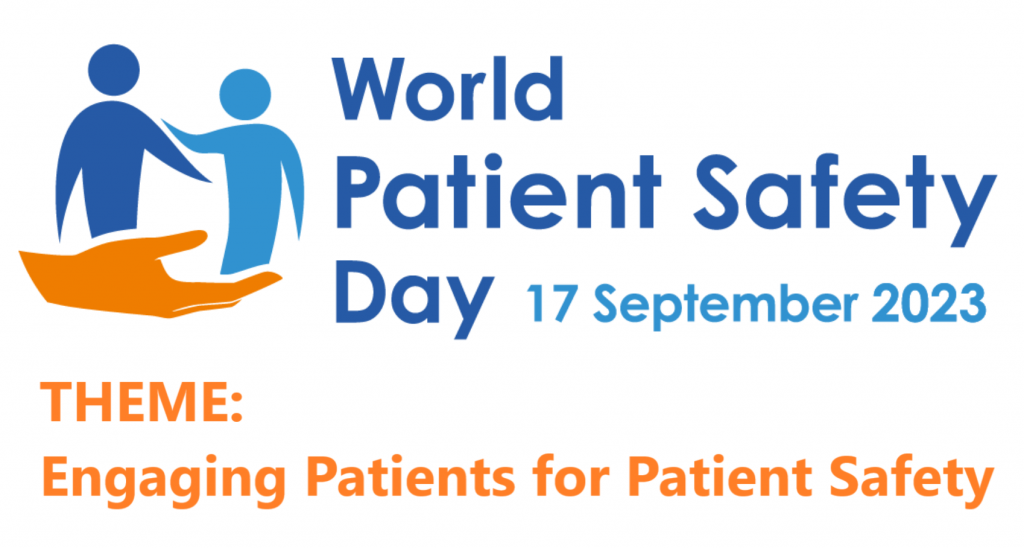
WHO World Patient Safety Day 2023 was dedicated to the involvement of patients and their relatives in their own care. Studies have shown that if we treat patients as partners, we can achieve better outcomes both in health status and patient satisfaction, as well as in patient safety. With this year’s slogan “Elevate the voice of patients”, WHO calls on decision-makers to form strategies that help patients become active participants in their own care. The main objectives of this year’s World Patient Safety Day:
- Raise awareness to the need of active engagement of patients in all levels of healthcare
- Engage policy makers, health care leaders, health care workers, patient organisations, etc. in the development of strategies for patient involvement
- Empower patients for active participation in their own care
- Advocate urgent action on patient and family engagement, aligned with the Global Patient Safety Action Plan
Following these objectives, the World Patient Safety Day conference organized in Budapest on September 18, 2023, with the participation of more than 220 people, covered the topics of patient involvement at the sectoral and institutional level.
In the first session of the conference, following the opening speeches of Dr. Éva Belicza and Dr. Szabolcs Szigeti, representative of the WHO Office in Hungary, speakers discussed the issues of patient involvement at a system level.
Dr. Mariann Moizs, Ministry representative, gave a presentation on the new policies focusing on patient involvement and the development of relevant care standards. Dr. Miklós Szócska’s presentation on successful change management strategies confirmed through real-life experience that the secret of success is the involvement of the relevant stakeholders and organizations. His key message was that “success can only occur if the actors in healthcare (not only doctors, but also healthcare professionals) consider the plans as their own”. The experiences he shared with the audience can be useful to decision makers as well as institutional managers who wish to improve their patient empowerment strategies.
In the third presentation, Dr. Gábor Kovács introduced the bundled financing technique, which promotes a higher level of sectoral efficiency, and with the appropriate requirements for quality, also suitable for improving patient safety. Dr. György Purebl from the Institute of Behavioral Sciences at Semmelweis University discussed the importance, international advancements and main criteria of patient involvement. According to him, patient involvement must be more than mere delivery of information (information overload). For successful patient empowerment, it is also necessary to increase their sense of responsibility, they need to feel that they have a part in the decisions regarding their own care.
The last two presentations of the session introduced good patient empowerment practices. Dr. Csaba Grózli explained the goals, experiences and motivational practices of the Hungarian Organisation of Transplant Recipients. Dr. Ádám Balázs Máté from the Department of Internal Medicine and Oncology at Semmelweis University introduced the campaign titled “Patients for patients”. Both speakers confirmed that the patients’ own commitment and the understanding of their own condition, as well as their active involvement in their care play a major role in successful patient care.
In the first afternoon session there were six presentations about various aspects of patient and family involvement. The employees of the Integrated Legal Protection Service of the Ministry of the Interior, Dr. Krisztina Novák and Dr. Ingrid Lengyel explained the concepts and definitions related to patients’ rights. They showed how many and what kind of patient rights inquiries they received in recent years, and in what form patients’ rights can be enforced. Barbara Schuster presented the activities of the Vertebra Foundation and how it was possible to relieve the burden on the care system for patients with severe spinal deformities undergoing surgery. The second half of the session focused on the topic of safe medication. Dr. Dániel Schmidt introduced the general challenges of medication safety and how they can be dealt with in daily practice. In her presentation, Eszter Bujdosó explained the reason why the safe medication of the elderly requires more attention, and she shared the recommended steps for improvement. Dr. Miklós Kresznovszki shared his experiences about how digital technology can help public pharmacies.
The second afternoon session introduced five presentations about patient education. Anikó Horváth, focusing on the regulations regarding patient education, presented the opportunities of transitioning to the Hungarian Healthcare Standards (MEES) 2.0. She also explained the necessary factors to be considered at system level for successful implementation. Mariann Tamáska gave a presentation on the importance and complexity of education for patients suffering from colon cancer. She also showed that properly implemented education practices improve surgical outcomes. Andrea Orbán presented the basics of stoma therapy, the importance of preoperative education and the tasks of aftercare. Following her presentation, Marcsa Krisztina Gurgolné introduced the features and results of the “Read, Teach, Know” Patient Support Program, which they applied for patients in radiation therapy. The changes they observed patient satisfaction levels support the importance of this program. Mónika Kelemen’s closing presentation spoke about the steps and benefits of involving the relatives of elderly patients, as well as the positive experiences of the patients and their relatives participating in the project.
In conclusion, all the presentations at the conference pointed out that the involvement and education of patients is useful, as it improves the efficiency and safety of care, and that there is a demand for this from both patients, relatives and healthcare workers.
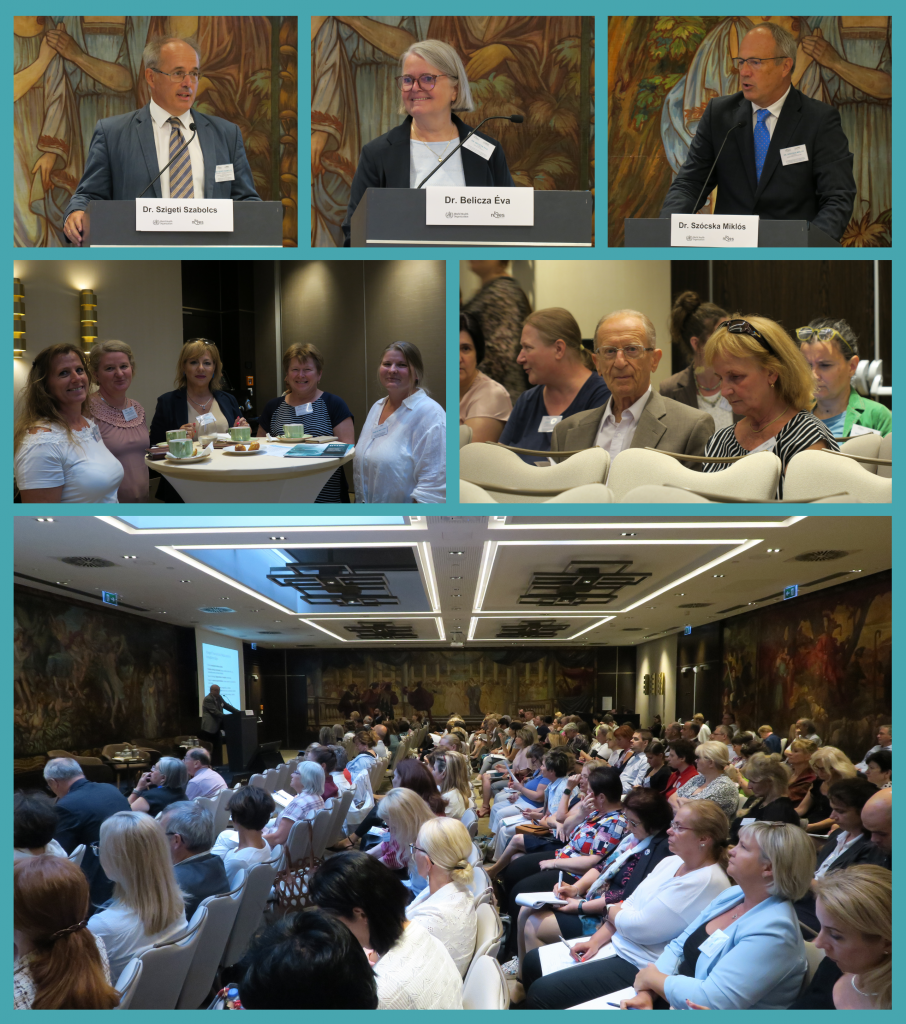

A következő eseményeink tervezett időpontjai:
- 2026. (a pontos dátumot hamarosan közzétesszük)
AKTÍVAN A BETEGBIZTONSÁGÉRT!
Az egészségügyi ellátórendszer szakmai módszertani fejlesztése című, EFOP 1.8.0 – VEKOP 17 jelű pályázati konstrukció betegbiztonsági alprojekt szakmai koncepciója és eredményei: Zárókiadvány
NEVES program
Tovább
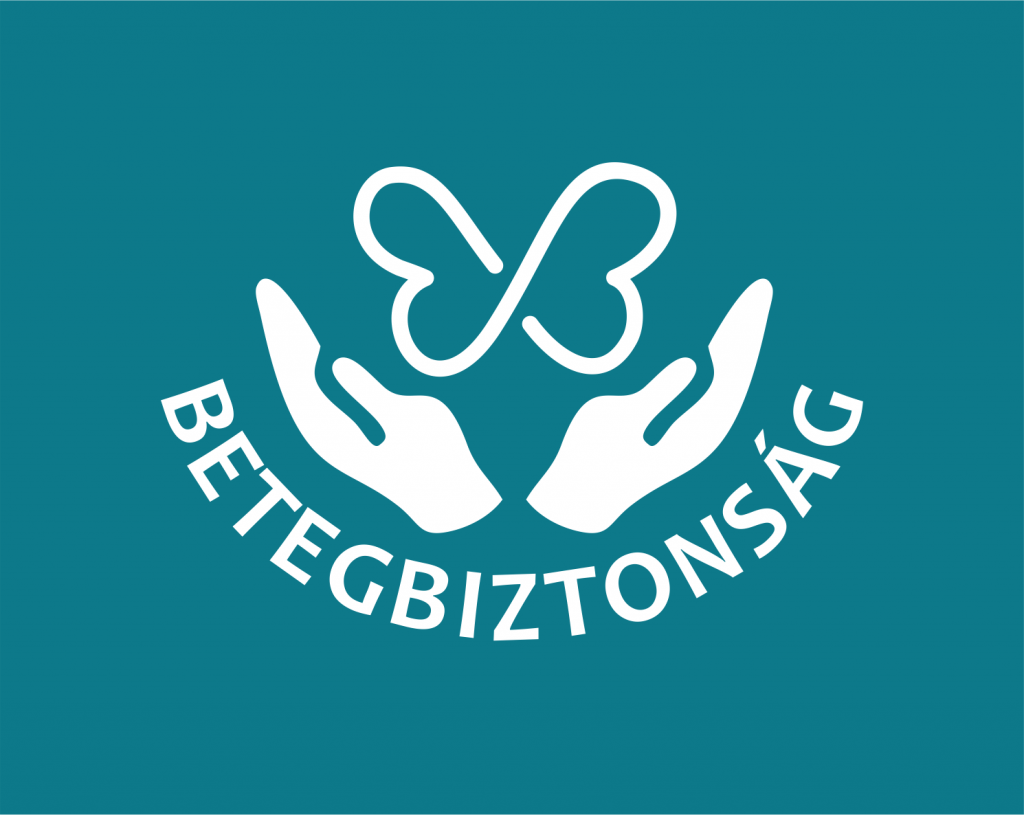
GY.I.K. - a NEVES szoftverhez
Kapcsolódó oldalak
További információ
BELLA program
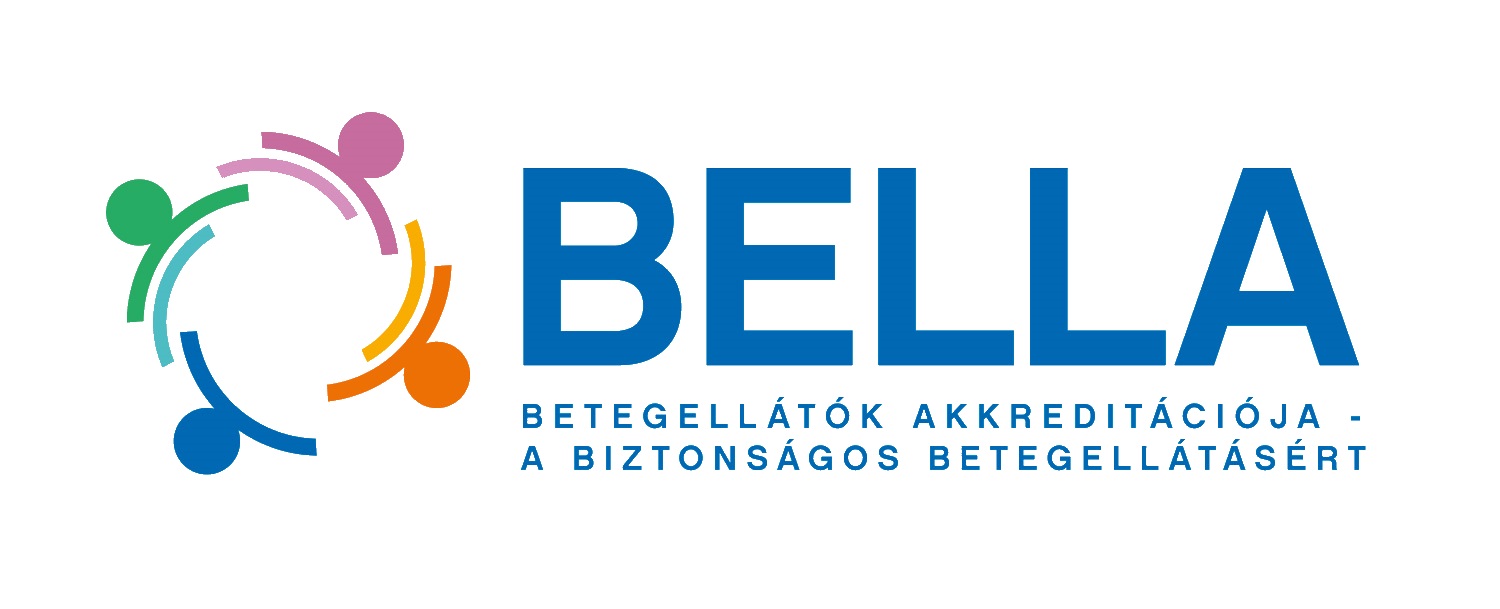
akkreditáció BELLA belső jelentési rendszer betegbevonás betegbiztonság betegesés betegátadás bevezetés bevezető decubitus EFOP elemzési módszerek Európai Unió fejlesztés gyógyszerelés gyógyszerelési hiba gyökérok elemzés infekciókontroll jelentési eredmények jelentési hajlandóság jelentési rendszer jógyakorlat jó gyakorlatok klinikai audit kockázatkezelés kockázatmenedzsment kommunikáció korlátok kézhigiéné MAP4E nemkívánatos esemény NEVES NEVES jelentési rendszer ok projekt protokoll SE-EMK standard standardfejlesztés standardok tanúsítás tűszúrás tűszúrásos sérülések WHO újraélesztés
